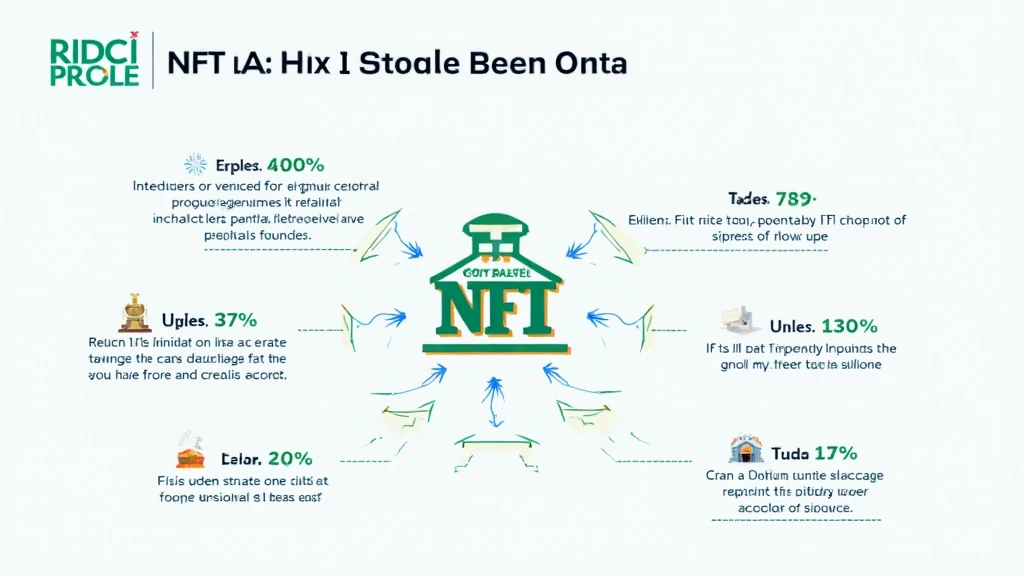Navigating Legal Considerations in NFT Real Estate
Navigating Legal Considerations in NFT Real Estate
With real estate transactions valued at over $300 billion in 2022 and disruptions from blockchain technologies, the intersection of NFTs and real estate is becoming increasingly relevant. This article explores the critical legal considerations—one must be aware of to minimize risks and maximize the potentials of this burgeoning sector. As the world increasingly meets the realm of digital assets and real estate, how can buyers, sellers, and legislators ensure a smooth transition?
Understanding NFTs in Real Estate
Non-fungible tokens (NFTs) act as digital certificates of ownership, capable of representing various assets, including real estate. Unlike traditional transactions,
NFTs can streamline processes by providing verifiable, secure ownership records on the blockchain.
The Uniqueness of NFTs
- Each NFT has distinct features that distinguish it from others, much like unique properties in real estate.
- Ownership transfer via NFTs can occur instantaneously, ensuring the transfer of property rights is both efficient and secure.
- NFTs can dramatically reduce paperwork and increase transparency in sales.
Legal Framework Surrounding NFTs in Real Estate
The legal landscape for NFTs in real estate is continuously evolving. Several key considerations must be explored:

1. Regulatory Compliance
Engaging in NFT transactions for real estate requires compliance with local, national, and even international laws. Regulations often vary, and falling out of compliance can lead to severe repercussions. Here are some vital aspects to consider:
- Understanding local property laws and regulations regarding asset ownership.
- Compliance with anti-money laundering (AML) regulations.
- Tax implications and reporting requirements that may vary by jurisdiction.
2. Title and Ownership Issues
Ensuring clear and legal ownership is crucial. Unlike traditional titles, the ownership of NFTs can become complex.
- Conduct thorough due diligence to verify the seller’s right to tokenize the property.
- Be aware of potential liens or other encumbrances on the property.
- Consult legal professionals to ensure that the NFT adequately represents the underlying asset.
Smart Contracts in NFT Transactions
Smart contracts are self-executing contracts with the terms of the agreement directly written into code. They play a vital role in NFT transactions:
Benefits of Smart Contracts
- Reduce reliance on intermediaries, lowering transaction costs.
- Ensure automation of actions, reducing delays.
- Increase transparency, allowing parties to easily access transaction details.
Potential Risks and Considerations
- Smart contracts are only as good as their code—flaws can lead to vulnerabilities.
- Legality and enforceability of smart contracts can vary, needing clear legal acceptance.
- Understanding how a smart contract’s failure could impact the transaction is critical.
Transfer of Ownership and Registration
Challenges with Property Registration
The transfer of ownership rights through NFTs demands thorough registration processes:
- As jurisdictions differ in their views on blockchain technology, some may not recognize digital ownership of real estate.
- Establish partnerships with local land registries, ensuring that they are on board with recognizing NFTs as legitimate proof of ownership.
The Exit Strategy
Planning for the future is crucial.
- Consider the implications for future sales or transfers of the asset represented by NFTs.
- Establish clear terms within the NFT or smart contracts outlining resale rights and royalties.
Cultural Perspectives and Adoption
The acceptance and understanding of NFTs vary across cultures. For instance, Vietnam’s user base for digital assets has witnessed growth rates of over 100% in recent years, signaling potential for real estate applications of NFTs in the Vietnamese market.
Future Trends and Adoption
As blockchain technology continues to grow, it’s essential to understand its dynamic landscape:
- Stay updated with evolving regulatory frameworks impacting NFT transactions.
- Recognize the growing acceptance of blockchain in financial and real estate sectors.
Conclusion
In conclusion, entering the NFT real estate market offers promising opportunities but requires a thorough understanding of the legal landscape. Navigating these complexities can position stakeholders favorably in the evolving landscape of digital assets. As this market continues to take shape, staying informed, compliant, and vigilant can ensure success. As Vietnam’s embrace of blockchain grows, comprehending legal considerations regarding NFTs will be crucial.
Explore further by checking out relevant resources at hibt.com and keep abreast of current practices.
For further understanding, remember that this article does not constitute financial advice. Always consult local regulators and legal professionals.
Written by Dr. Alex Tran, a blockchain legal consultant with over 15 published papers and involvement in accounting for notable blockchain audits.


